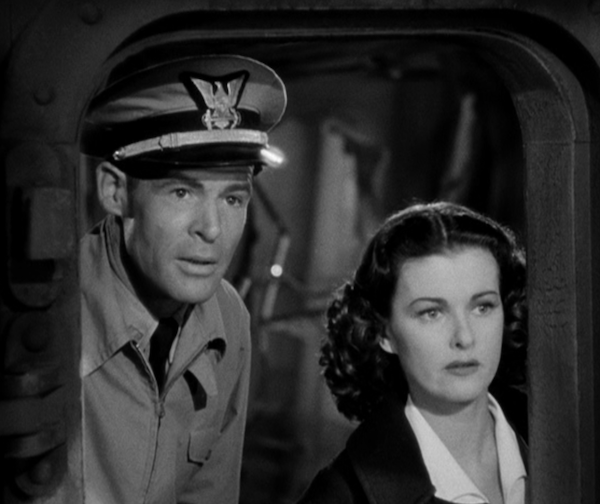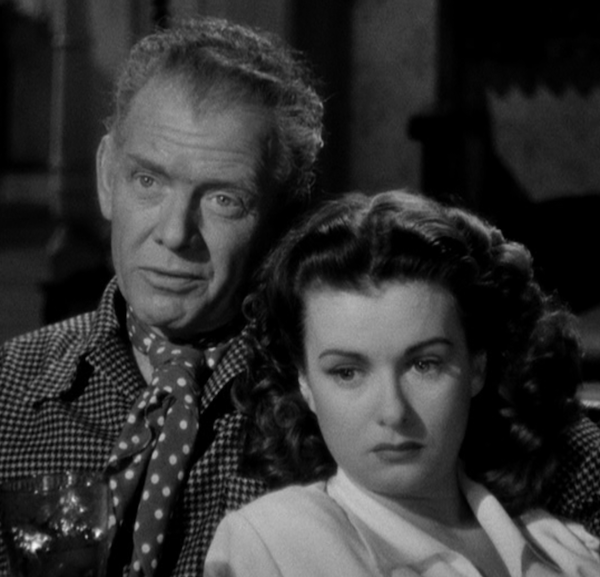The Woman on the Beach (1947)
Yes, this movie is a mess: confusing dialogue, incomprehensible character development, choppy plot development, and some truly unfortunate music choices. But there are three good reasons to still watch Jean Renoir’s curious noir, my choice for the Classic Movie Blog Association Fun in the Sun! blogathon

- Robert Ryan’s performance as Scott. Can any man in noir perform intensity as well as Robert Ryan? I never feel any attraction or liking for Ryan’s characters in any film, but he certainly gets under my skin. Who better to play a Coast Guardsman with PTSD than Ryan? Scott is also impulsive, erratic, and passionate—and fully realized thanks to Ryan.
- The complexity–and unpredictability–of the “love” triangle. Scott falls for Peggy (Joan Bennett), a woman collecting firewood next to an old shipwreck, because she’s haunted, like he is. It doesn’t hurt that Peggy looks like Joan Bennett. Unfortunately for Scott, Peggy is married to an artist, Tod (Charles Bickford), who is, if possible, even more intense than Scott. We learn soon that Peggy accidentally blinded Tod in a drunken squabble. Her husband is so awful–abusive and violent and creepy–that we understand her fling with Scott and desire to escape with him. But things aren’t quite what they seem. There is something still between Peggy and Tod, mysterious as that connection might be to viewers. It’s not exactly love; it’s not exactly hate. It may just be toxicity–but there’s something there all the same. How will it all turn out? The film keeps us guessing.
- Jean Renoir. It’s odd to watch a film by such a famed director that is such an odd misfire. The story is that an advance viewing was a disaster for Renoir, and he was forced to make cuts and edits that didn’t serve the story. While that butchering IS clear, his original goal isn’t. But that’s what makes the film so intriguing. What did he want to say about these three tortured people, especially the original couple? What are we to make of how it starts, and how it ends? Why did he feel traditional noir tropes wouldn’t serve him, and yet set out to write (with Frank Davis) a noir anyway? And why choose this story to adapt? It’s hard to say, but the guesswork will keep you watching.

This review is part of the blogathon held by the Classic Movie Blog association, Fun in the Sun! Check out the excellent entries there, which are also mainly much happier viewings than this grim tale!
